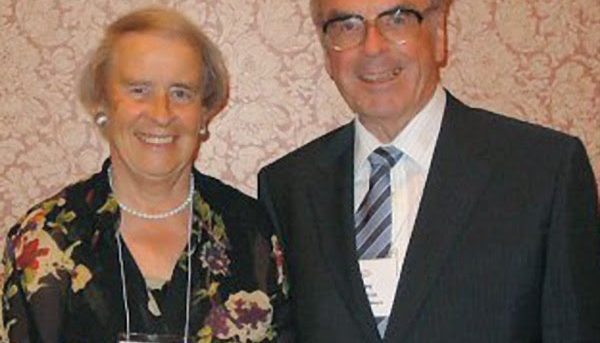Friends, if you did not hear the news, Professor Moltmann’s beloved wife, Elisabeth, passed away on Tuesday, June 7. The Moltmanniac has a lovely post you can read here. Professor Moltmann has stayed close to home these last few years taking care of her. They met as young seminary academics, both superstars in their fields, and they had four daughters. Elisabeth Moltmann-Wendel wrote a number of books, and the husband and wife team co-wrote a few as well. I especially would recommend Rediscovering Friendship, The Women Around Jesus, and the book I’ll quote from today, I am My Body. She is discussing stories of healing:
In contrast to the church tradition, which was always tormented by the inadequacy of the body, the New Testament begins with a confession of God’s good creation. We should turn to this tradition again and enliven the Christian community…
It is striking that women are not afflicted with the classic illnesses–blindness, deafness, dumbness, paralysis… Women appear with new ailments which have no male parallels: fever (of Peter’s stepmother), bent backs, bleeding from the uterus, the apparent death of Jairus’ daughter. In these illnesses it is not an external limb that is affected, but the whole person from the center. And the healings have much more far-reaching consequences than simply the regeneration of an organ… In any healing of a woman a greater social relationship is restored, one which was lost or perhaps was never there. The bent woman who is now set upright again is told that she too is a ‘daughter of Abraham’- a break with the patriarchal spiritual heritage. The woman with a bleeding uterus is promised shalom-totality, an end to the religious and social exclusion caused by her bleedings. It is said of Peter’s mother-in-law that after being healed she ‘served,’ a special expression for the involvement of women in the Jesus movement, which has nothing to do with our feminine availability. It is work to restore righteousness, of the kind also attributed to Jesus (Mark 10:45).
It’s good to remember that Jesus was a feminist, and by that I mean that Jesus called women into a life of equal footing, of friendship, with men and in society in general. I especially appreciate Moltmann-Wendel pointing out that when Peter’s mother-in-law got up after Jesus healed her fever and began to serve, the word serve here is the same one used throughout the gospel to describe what followers and disciples of Jesus did. It did NOT mean she simply made everyone dinner, though she may have done so. It means she was brought into healing to be a disciple, to serve the world for the goodness of God.
It’s also interesting to think about how unique the healings of some women were in the New Testament, which I had not considered before reading her book. They had situations that limited them socially in ways that were harmful and in some cases extreme. A man would need to have leprosy to experience that kind of isolation; a woman only needs to bleed. Jesus saw this woman, though, and in healing her she was given shalom, wholeness, which is the intention of life.
There are so many headlines these days about violence against women. They point to a society where women’s bodies are seen as targets, as threats, and also as unreliable witnesses. By the very fact of having a body, women are seen as somehow untrustworthy, or to blame for the violence done agains them. We live in a culture where men expect to be able to do what they want and say what they want about a woman’s body and legislate to make choices on behalf of a woman’s body, all of which undermines a woman’s sense of control. And we also live in a culture where women are held to impossible levels of accountability for those same bodies. It is insanity.
Which is why we need a theology of embodiment, which sees our senses and our skin and our whole selves as an integral part of life, and by extension, faith. I continue to be baffled by the ways Christianity can be so anti-body when we are the people who follow an incarnated God. Faith does not require us to go against our bodies. We are designed to live life with God and in creation with all of our bodies.
For women, who struggle up a mighty mountain of disregard for the bodies we inhabit, it is good news that we follow One who sees us in whole, and who rejects a world where we would be considered anything less.

Thanks for writing this. Really enjoying your blog!
Thank you!